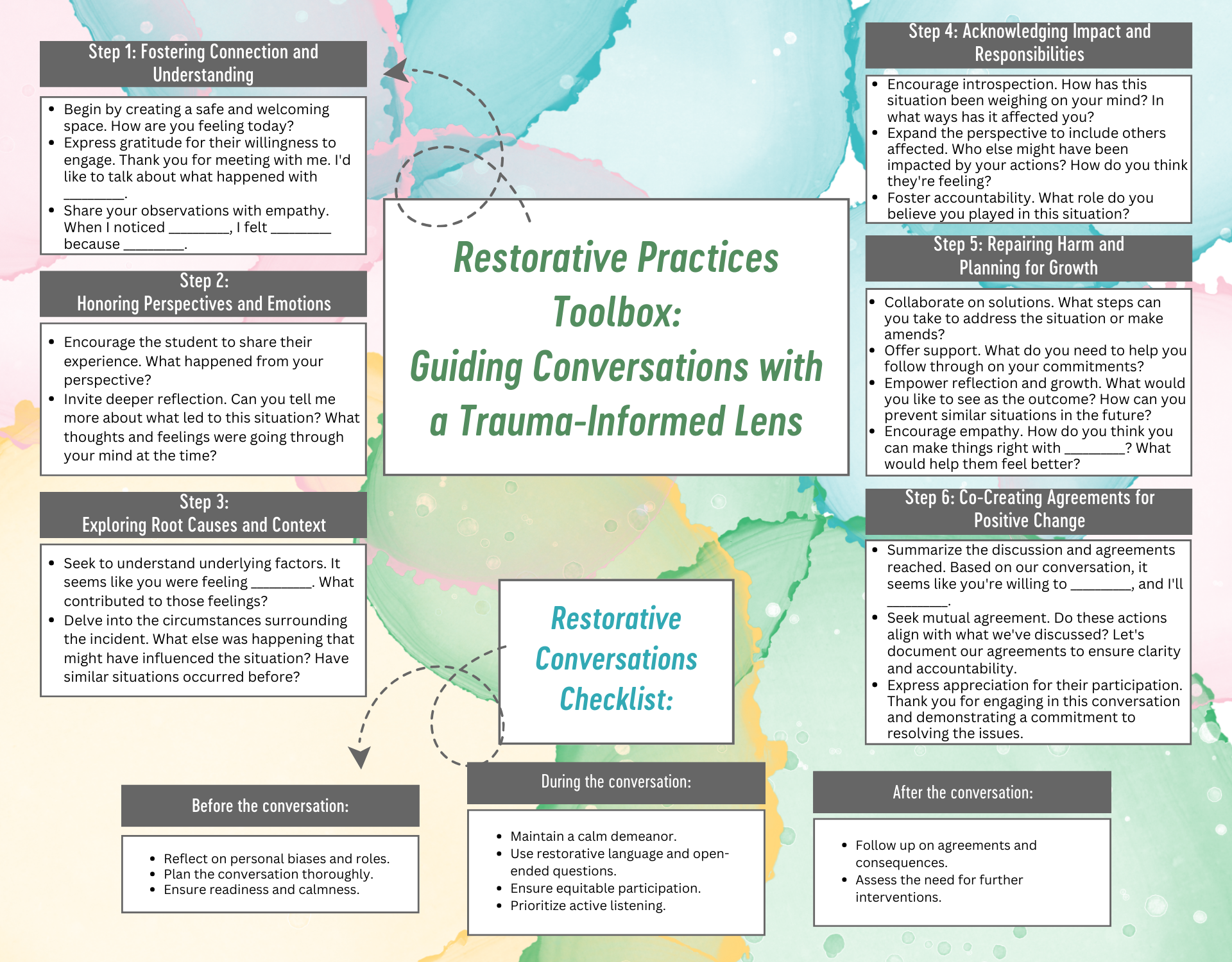Hello, fellow educators and guardians of compassionate learning! Today, we embark on a transformative journey towards redefining disciplinary practices through the lens of restorative justice and resilience-focused mindset. Prepare to be inspired as we delve into a realm where exclusion, as a last resort in response to behavior, is reframed as an opportunity for connection, growth, and healing.
At Starr Commonwealth, we recognize the profound impact of trauma on young minds and the urgency of cultivating safe, nurturing environments within our educational spaces. It’s time to bid farewell to punitive measures that fracture relationships and breed resentment and, instead, embrace a mindset centered on restoration and reconnection.
Imagine this scenario: a student grappling with challenges beyond their control acts out in a way that disrupts the classroom environment. This might trigger an immediate exclusion in traditional settings, perpetuating a cycle of disengagement and isolation. But what if we paused, took a collective breath, and approached the situation with empathy and understanding?
Enter restorative discipline—a proactive and holistic approach rooted in the principles of healing and accountability. It begins with nurturing a culture of belonging and empowerment, where every voice is valued, and every behavior is viewed as an opportunity for growth.
Before exclusion becomes the default response, let’s explore the power of staying connected. This means reaching out to the student and their family, not with judgment or blame, but with genuine curiosity and support. It means engaging in restorative conversations that foster empathy, reflection, and mutual understanding.
In addition to maintaining connection, consider implementing restorative circles within your classroom or school community. These circles provide a structured space for dialogue, allowing participants to share their perspectives, express their feelings, and work collaboratively toward resolution. By embracing restorative circles, you create a sense of collective responsibility and empower students to become active participants in their own growth and development. This, in turn, serves as a proactive and universal approach to prevent behaviors that are hurtful to the learning environment!
Furthermore, let’s not overlook the critical role of reintegration meetings. Within the system of education, we understand that sometimes exclusionary practices are deemed necessary, especially in ensuring the maintenance of a safe learning environment for both staff and students. As such, when removing a student from their learning environment is deemed necessary, the need for a reintegration meeting upon their return to school is critical! These gatherings bring together all parties involved in the incident that took place, creating a sacred space for healing and reconciliation. Here, relationships are reaffirmed, harm is acknowledged, and plans for moving forward are collaboratively devised. This is where the real work of accountability, learning from mistakes, and learning empathy takes place.
But the journey doesn’t end there. Restorative discipline isn’t just a reactive measure; it’s a way of life. By adopting the Circle of Courage philosophy, we equip ourselves with a framework that honors the innate resilience and potential of every student. Start with universal approaches that promote belonging, mastery, independence, and generosity. And for those in need of additional support, offer targeted interventions that address underlying needs and teach essential skills while we simultaneously work to fulfill any unmet needs that exist.
So, dear educators, let us embark on this transformative journey together. Let us reclaim discipline as an act of love, healing, and empowerment. As we navigate the challenges ahead, let us remember the profound impact we have on shaping the hearts and minds of the next generation.
Together, we can create a world where every child feels seen, heard, and valued. Let’s make it happen, one restorative connection at a time.



